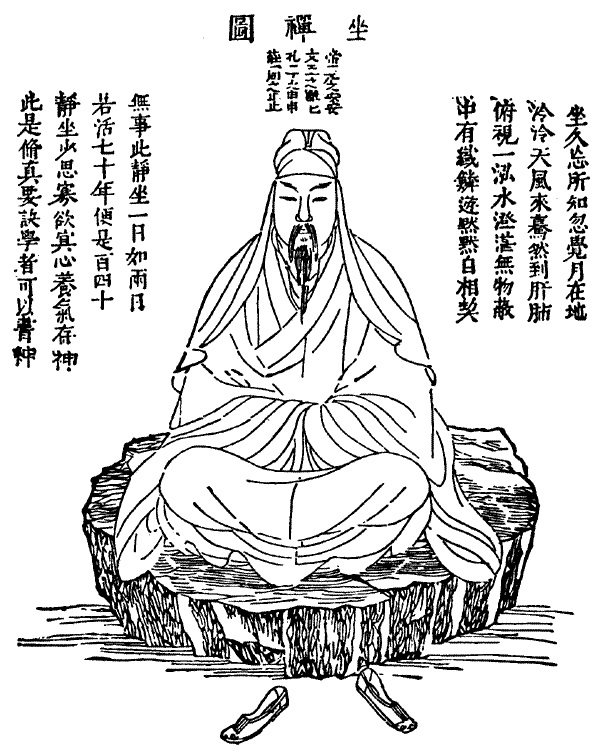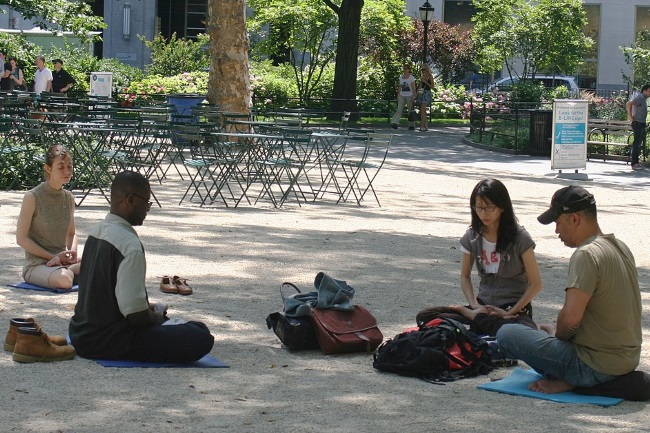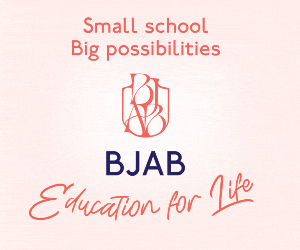Our latest Stress management advice article Karen Northshield guides you towards successful meditation
Meditation has been around for centuries and in today, many different forms have flourished across the globe. For the beginner, meditation can be a source of frustration and appear a waste of time. In this article, I propose a user-friendly, immediate and applicable guide, with the secret ingredients to a successful meditation practice.
Contrary to common thought, you can reap the many health benefits already from your first practice and apply the principle ‘less is more’. No need to go on an expensive retreat or meditate for hours on end. A 10-20 minute practice will suffice. Regularity and not quantity will make a lasting difference.
The rule of 3: observe, process, liberate/elevate/vibrate
Observation: We often think that meditating is the ability to cancel out thoughts. If this is our objective, we are at a dead end. Humans are by definition thinking machines? and it is in our natural ability to think. What brings sense to meditation is observing our thoughts for what they are and organizing them as we would put order in our tool shack. Meditation is, therefore, a tool to cultivate inner silence and wisdom.
The first secret to successful meditation lies in the ability to observe or contemplate without analyzing. It is the ability to sit and observe without reacting to a thought or an impulse. Observation is a quality or a competence (hence the motto “listen more, talk less”); the difference is in responding (or not) versus reacting.
A response is delayed, rational and detached from emotion.
A reaction is immediate and full of emotions (like talking back).
A thought is a mental stimulus. You may not choose the thoughts that arise (or the situation), but you can choose how you respond to the thought/situation by observation.
If you find yourself bickering, judging your thoughts, labelling them right or wrong, you are not observing and applying the number one rule to meditation: observation is the art of cultivating one’s thoughts. Observation creates clarity of thoughts, calmness and inner peace. Judgment of thoughts creates inner conflicts and states of affliction. The states of mind are different. Peace versus conflict, harmony versus disturbance. It is all in the state of the art. The art of observing versus the desire to judge. Nobody enjoys being judged, so why would you judge your thoughts, which ultimately puts you in a state of judging yourself.
Mindful meditation is cultivating the ability to observe and to differentiate between reacting (to an impulse) and responding (pausing, listening, thinking). It is the mindful difference. True wisdom is the ability to listen more and talk less. Cultivating silence is an art. Sometimes, it is better not to react and be stronger than one’s impulse by not responding. This is inner strength in action.
Consider the popular saying: “Intelligence is asking the right question, knowledge is having the right answer, wisdom is knowing whether to say it or not.”
Meditation is a process not an end goal
We often want to reach our final destination and pay little or no attention to the process of getting there. We may think that reaching a goal brings happiness and wait for happiness to arrive. In other words, we sometimes put ourselves in an expectation mode of the outcome as a condition to experience the reward. It is like allowing the reward after the effort.
But what if the effort is the reward? More often than not we arrive at our destination and see the happiness or satisfaction dissipate. In reality, happiness is the path, not the destination. So happiness is in each step of the way, it is in the moment, not an end goal or future that has not yet come. Accepting meditation as happiness in each observable moment is the trick to pleasurable moments lost in translation. You may never reach your destination; your direction can change at any moment. Sometimes we have little control over the destination, anything can throw us off course, but we can find the happiness in each observable moment.
And so the second secret to meditation is in accepting meditation as a process. What is more, meditation cultivates the present moment. It requires one to live the present moment, which is the only moment we ever have. The past is no longer, the future has not yet come, the present is all we have.
Allow magic to happen
If you go into meditation with expectations, you may come away with deception. If you make a fully packed bucket list for your vacation and end up doing only half you may feel disappointed. Instead, rather than planning your vacation in detail, leave time and space for the unexpected to happen. Often magic happens when we least expect it. When we plan, we control. When we let go, we live in the present moment and allow magic to unfold. This is the final key ingredient to successful meditation.

To put the secret recipe of meditation into perspective, I would like to share a personal analogy. Many years ago, I was on a spiritual quest. I did a Vipassana meditation course, which is meditating for 10 hours a day for 10 days straight – a lot of quantity. I went in with high expectations of coming out profoundly transformed. I thought that by putting quantity into the experience, it would be worth my time but it created the exact opposite. Instead of being in the present moment and enjoying the process, I was focused on the outcome, the future and came out disappointed. Magic did not happen. I was not completely transformed from head to toe like I had expected.
I understood from the experience that quantity is not necessarily a good thing and that having expectations means focusing on the future rather than the process at hand. I was not once in the present moment during my Vipassana retreat. Today, I get so much more out of a mindful meditation practice lasting minutes and put my intention in the moment at hand. By observing the process and living the present moment, I notice subtle changes which create profound and lasting changes. It increases my awareness, expands my consciousness and brings me joy and happiness. Magic happens.
The trick to make it last
Meditation is an art, and when practiced with regularity and discipline it can become a lifestyle just like a martial art or a life philosophy. As with everything, like training for a marathon, learning a new language or skill, decluttering your house, meditation takes practice and patience. We often think that more is better. It is not necessary to meditate for hours on end or to retreat for three years like monks do. Regularity and quality can bring quantum changes in your life. In good case examples, it takes a simple daily practice of 10-20 minutes to make a visible and sensational change in our lives. Therefore, quality and being present (being in the moment) will make the difference. The quality of your practice gives you quality in your life.
Right now, right here is a good place to start. Take a few deep breaths, observe, process and allow magic to happen.







